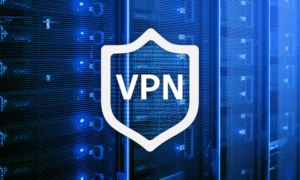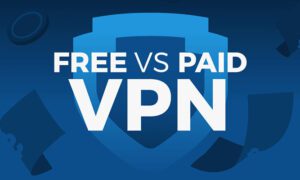Introduction
In the contemporary digital age, online privacy and security have emerged as principal concerns for individuals and corporations alike. With the increasing number of cyber threats and privacy breaches, it has become vital to defend our online activities. One effective device that guarantees anonymous internet browsing is a Virtual Private Network (VPN). In this comprehensive manual, we will decode personvernpanettet VPNs and provide you with the last manual to anonymous net surfing.
What is a VPN?
A VPN, or Virtual Private Network, is a technology that creates a secure and encrypted connection between your device and the internet. It acts as an intermediary, routing your internet traffic through an encrypted tunnel to a VPN server. This technique masks your IP address and encrypts your facts, making it tough for all and sundry to track your online activities.
How Does a VPN Work?
When you connect to a VPN server, it creates a steady tunnel for your visitors. All your statistics, inclusive of web sites visited, documents downloaded, and messages sent, skip through this tunnel. The VPN server assigns you a new IP address, changing your authentic one. This way, your online sports become anonymous and untraceable.
Benefits of Using a VPN
- Enhanced Security and Privacy
Using a VPN guarantees that your online activities are protected from hackers, authorities surveillance, and different prying eyes. The encryption provided with the aid of VPNs prevents anyone from intercepting or snooping on your information.
- Anonymity and Unblocking Geo-Constrained Content
A VPN permits you to browse the internet anonymously by hiding your real IP address. This anonymity no longer only protects your privacy but additionally allows you to skip geo-restrictions and get access to area-locked content material.
three. Protection on Public Wi-Fi Networks
Public Wi-Fi networks are infamous for their lack of safety. When you connect to a public Wi-Fi hotspot, your statistics become vulnerable to hackers. However, by using a VPN, you can encrypt your connection and make sure that your records stay steady even on unsecured networks.
VPN Protocols
VPN protocols are the set of guidelines and encryption standards utilized by VPNs to set up a stable connection. Let’s take a look at some famous VPN protocols:
- OpenVPN
OpenVPN is an open-source VPN protocol known for its robust security and versatility. It uses a mixture of encryption protocols, including SSL and TLS, to secure your records. OpenVPN is well suited for diverse platforms and is considered one of the most stable VPN protocols available.
- L2TP/IPsec
Layer 2 Tunneling Protocol (L2TP) blended with IPsec (Internet Protocol Security) provides a stable connection for VPNs. L2TP/IPsec is widely supported and offers proper security; however, it is no longer as rapid as different protocols.
- IKEv2/IPsec
Internet Key Exchange version 2 (IKEv2) is a VPN protocol recognized for its velocity and stability. It is frequently used on cell gadgets due to its capability to quickly reconnect to the VPN server while switching between networks. When combined with IPsec, IKEv2 offers sturdy security for your VPN connection.
How to Choose the Right VPN Provider
Selecting the right VPN issuer is critical to ensuring a secure and dependable connection. Here are a few elements to keep in mind when choosing a VPN:
- Security and Privacy Features
Look for a VPN issuer that offers robust protection functions like sturdy encryption, a strict no-logs policy, and a kill switch. These features make sure that your data stays private and protected.
- Server Network
A huge server network affords greater options for deciding on virtual locations and improves the performance of your VPN connection. Check if the VPN provider has servers in the international locations or regions you want.
- Speed and Performance
Because of the overhead of encryption, some VPNs may also slow down your internet connection. Look for VPN companies that provide high-velocity servers and have a reputation for accurate performance.
- User-Friendly Interface
A user-friendly interface makes it easy to set up and use a VPN. Look for VPN providers that provide intuitive apps for distinctive gadgets and operating systems.
VPN Decoded: The Ultimate Guide to Anonymous Web Browsing
When it involves nameless web browsing, a VPN is your high-quality best friend. By connecting to a VPN server, you can browse the web without revealing your true identity. Here’s a step-by-step guide on how to use a VPN for anonymous internet surfing:
- Choose a reliable VPN provider. Research and choose a good VPN provider that meets your requirements for protection, privacy, and speed.
- Subscribe to a VPN plan: Sign up for a VPN plan that suits your wishes. Most VPN vendors offer different subscription alternatives, consisting of monthly, yearly, and 12-month plans.
- Download and set up the VPN app: After subscribing, download the VPN app on your device or operating system. Most VPN carriers offer apps for Windows, Mac, iOS, Android, and other platforms.
- Launch the VPN app. Open the VPN app and log in using your credentials.
- Select a VPN server place: Choose a VPN server region from the listing furnished with the aid of the VPN app. Select a server in a country where you want to browse from.
- Connect to the VPN server: Click the “Connect” button to set up a stable connection to the VPN server.
- Verify your connection: Once connected, verify that your IP address has changed. You can use online equipment or go to websites like whatismyip.com to check your IP address.
- Start nameless internet surfing: With the VPN connection active, you may now browse the internet anonymously. Your data is encrypted, and your real IP address is hidden.
FAQs (Frequently Asked Questions)
Q1: Is the use of a VPN legal?
A1: Yes, using a VPN is legal in most nations. However, it’s critical to observe that while the use of a VPN is a felony, undertaking unlawful activities with a VPN isn’t.
Q2: Can a VPN gradually slow down my internet connection?
A2: Yes, the use of a VPN can bring about a slight decrease in internet speed due to the encryption and routing strategies. However, a very good VPN issuer will limit the effect on your connection velocity.
Q3: Can I use a VPN on my cellular devices?
A3: Absolutely! Most VPN companies offer apps for both iOS and Android gadgets, permitting you to shield your privacy and surf anonymously on your cellular devices.
Q4: Can I use a VPN to bypass geo-restrictions?
A4: Yes, one of the biggest advantages of using a VPN is its capacity to bypass geo-restrictions. By connecting to a server in a distinct state, you can get access to place-locked content.
Q5: Can I use a VPN to torrent files effectively?
A5: Yes, a VPN can provide a further layer of safety while torrenting documents with the aid of protecting your IP address and encrypting your records. However, ensure to test if torrenting is allowed with the aid of the VPN provider’s terms of service.



































